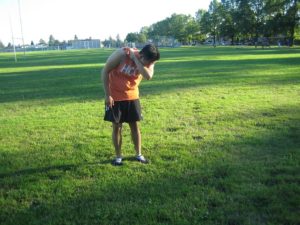Mouth breathing is necessary if nasal congestion is present due to common cold or allergies. If exercising vigorously, breathing via the mouth helps move oxygen in a faster rate to the muscles.
Nevertheless, mouth breathing all the time, including when sleeping can result to issues. Among children, it can cause facial deformities, crooked teeth or poor growth. As for adults, chronic breathing via the mouth can cause gum disease, bad breath and even worsen the symptoms of other health ailments.
Am I breathing by my mouth?
Most are not aware that they are mouth breathing instead of the nose especially while sleeping. Individuals who breathe via the mouth at nighttime might have the following:
- Dry mouth
- Snoring
- Hoarseness
- Bad breath
- Chronic fatigue
- Waking up tired and irritable
If the nose is obstructed, the body inevitably resorts to the only source of oxygen which is the mouth. - Dark circles under the eyes
- Brain fog
What are the causes?
The usual underlying cause of mouth breathing is a blocked nasal airway. If the nose is obstructed, the body inevitably resorts to the only source of oxygen which is the mouth.
There are various causes of an obstructed nose include:
- Enlarged adenoids
- Nasal congestion due to common cold, allergies or sinus infection
- Deviated septum
- Enlarged tonsils
- Anatomy of the nose and jaw
- Nasal polyps
- Enlarged turbinates
- Obstructive sleep apnea
- Tumors (rare)
Management of mouth breathing
The treatment for mouth breathing is based on the cause. Drugs are given to manage nasal congestion caused by allergies and common cold such as:
- Antihistamines
- Nasal decongestants
- Over-the-counter or prescription steroid nasal sprays
Adhesive strips placed on the nose bridge can also assist with breathing. A nasal dilator which is a rigid adhesive strip is positioned across the nostril to reduce airflow resistance and assists with breathing via the nose easily.
For obstructive sleep apnea, the doctor will suggest continuous positive air pressure therapy (CPAP). This device delivers air to the nose and mouth via a mask. The pressure of the air prevents the airways from collapsing and being blocked.

